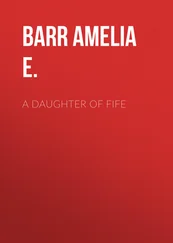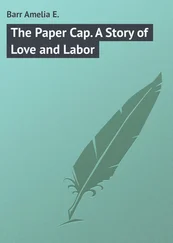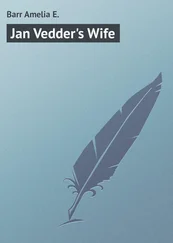Amelia Barr - Christine - A Fife Fisher Girl
Здесь есть возможность читать онлайн «Amelia Barr - Christine - A Fife Fisher Girl» — ознакомительный отрывок электронной книги совершенно бесплатно, а после прочтения отрывка купить полную версию. В некоторых случаях можно слушать аудио, скачать через торрент в формате fb2 и присутствует краткое содержание. Жанр: foreign_prose, на английском языке. Описание произведения, (предисловие) а так же отзывы посетителей доступны на портале библиотеки ЛибКат.
- Название:Christine: A Fife Fisher Girl
- Автор:
- Жанр:
- Год:неизвестен
- ISBN:нет данных
- Рейтинг книги:3 / 5. Голосов: 1
-
Избранное:Добавить в избранное
- Отзывы:
-
Ваша оценка:
- 60
- 1
- 2
- 3
- 4
- 5
Christine: A Fife Fisher Girl: краткое содержание, описание и аннотация
Предлагаем к чтению аннотацию, описание, краткое содержание или предисловие (зависит от того, что написал сам автор книги «Christine: A Fife Fisher Girl»). Если вы не нашли необходимую информацию о книге — напишите в комментариях, мы постараемся отыскать её.
Christine: A Fife Fisher Girl — читать онлайн ознакомительный отрывок
Ниже представлен текст книги, разбитый по страницам. Система сохранения места последней прочитанной страницы, позволяет с удобством читать онлайн бесплатно книгу «Christine: A Fife Fisher Girl», без необходимости каждый раз заново искать на чём Вы остановились. Поставьте закладку, и сможете в любой момент перейти на страницу, на которой закончили чтение.
Интервал:
Закладка:
“I hope that young man isna thinking,” she said, “that his baskets o’ flowers and fruit is pay enough for Neil’s service.”
“Mither, he promised to pay Neil.”
“To be sure. But I didna hear o’ any fixed sum. Some rich people hae a way o’ giving sma’ favors, and forgetting standing siller.”
“He seemed a nice young man, Mither, and he did admire your garden. I am sure he has told Neil to send the flowers because you loved flowers. When folk love anything, they like others who love as they do. Mebbe they who love flowers hae the same kind and order o’ souls. You ken if a man loves dogs, he is friendly at once wi’ a stranger who loves dogs; and there’s the Domine, who is just silly anent auld coins – copper, siller or gold – he cares not, if they’re only auld enough. Nannie Grant, wha keeps his house, told Katie Tweedie that he took a beggar man into his parlor, and ate his dinner with him, just because he had a siller bit o’ Julius Cæsar in his pouch, and wouldna part wi’ it, even when he was wanting bread.”
“Weel then, the Domine doubtless wanted the penny.”
“Vera likely, but he wouldna tak it frae the puir soul, wha thought sae much o’ it; and Nannie was saying that he went away wi’ a guid many Victoria pennies i’ his pouch.”
“The Domine is a queer man.”
“Ay, but a vera guid man.”
“If he had a wife, he would be a’ right.”
“And just as likely a’ wrang. Wha can tell?”
“Weel, that’s an open question. What about your ain marriage?”
“I’ll marry when I find a man who loves the things I love.”
“Weel, the change for Neil, and for the a’ of us has been – in a way – a gude thing. I’ll say that.”
Margot was right. Even if we take change in its widest sense, it is a great and healthy manifestation, and it is only through changes that the best lives are made perfect. For every phase of life requires its own environment, in order to fulfill perfectly its intention and if it does not get it, then the intent, or the issue, loses much of its efficiency. “Because they have no changes, therefore they fear not God,” is a truth relative to the greatest nations, as well as to the humblest individual.
Neil was benefited in every way by the social uplift of a residence in a gentleman’s home, and the active, curious temperament of Angus stimulated him. Angus was interested in every new thing, in every new idea, in every new book. The world was so large, and so busy, and he wanted to know all about its goings on. So when Neil’s business was over for the day, Angus was eagerly waiting to tell him of something new or strange which he had just read, or heard tell of, and though Neil did not realize the fact, he was actually receiving, in these lively discussions with his friend, the very best training for his future forensic and oratorical efforts.
Indeed he was greatly pleased with himself. He had not dreamed of being the possessor of so much skill in managing an opposite opinion; nor yet of the ready wit, which appeared to flow naturally with his national dialect. But all this clever discussion and disputing was excellent practice, and Neil knew well that his visit to Ballister had been a change full of benefits to him.
One of the results of Neil’s investigations was the discovery that Dr. Magnus Trenabie had been presented to the church of Culraine by the father of Angus, and that his salary had never been more than fifty pounds a year, with the likelihood that it had often been much less. Angus was angry and annoyed.
“I give my gamekeeper a larger salary,” he said. “It is a shame! The doctor’s salary must be doubled at once. If there are any technicalities about it, look to them as quickly as possible. Did my father worship in that old church?”
“He did, and I have heard my father tell very frequently, how the old man stood by the church when the great Free Kirk secession happened. He says that at that burning time everyone left Dr. Trenabie’s church but Ballister and ten o’ his tenants, and that the doctor took no notice of their desertion, but just preached to your father and the ten faithful. He was never heard to blame the lost flock, and he never went into the wilderness after them. Your father would not hear of his doing so.
“Magnus,” he would say, “tak’ time, and bide a wee. The puir wanderers will get hungry and weary in their Free Kirk conventicles, and as the night comes on, they’ll come hame. Nae fear o’ them!”
“Did they come home?”
“Every one of them but three stubborn old men. They died out of its communion, and the old Master pitied them, and told their friends he was feared that it would go a bit hard wi’ them. He said, they had leaped the fence, and he shook his head, and looked down and doubtful anent the outcome, since naebody could tell what ill weeds were in a strange pasture.”
After this discovery Angus went to the old church, where his father had worshiped, and there he saw Christine, and there he fell freshly in love with her every Sabbath day. It did not appear likely that love had much opportunity, in those few minutes in the kirk yard after the service, when Neil and Angus waited for Margot and Christine, to exchange the ordinary greetings and inquiries. James Ruleson, being leading elder, always remained a few minutes after the congregation had left, in order to count the collection and give it to the Domine, and in those few minutes Love found his opportunity.
While Neil talked with his mother of their family affairs, Angus talked with Christine. His eyes rained Love’s influence, his voice was like a caress, the touch of his hand seemed to Christine to draw her in some invisible way closer to him. She never remembered the words he said, she only knew their inarticulate meaning was love, always love. When it was time for Ruleson to appear, Margot turned to Angus and thanked him for some special gift or kindness that had come to the cottage that week, and Angus always laughed, and pointing to Neil, said:
“Neil is the culprit, Mrs. Ruleson. It is Neil’s doing, I assure you.” And of course this statement might be, in several ways, the truth. At any rate, the old proverb which advises us “never to look a gift horse in the mouth,” is a good one. For the motive of the gift is more than the gift itself.
These gifts were all simple enough, but they were such as delighted Margot’s childlike heart – an armful of dahlias or carnations – a basket of nectarines or apricots – two or three dozen fresh eggs – a pot of butter – a pair of guinea fowls, then rare in poultry yards, or a brood of young turkeys to feed and fatten for the New Year’s festival. About these fowls, Neil wrote her elaborate directions. And Margot was more delighted with these simple gifts than many have been with a great estate. And Christine knew, and Angus knew that she knew, and it was a subtle tie between them, made of meeting glances and clasping hands.
CHAPTER IV
THE FISHERMAN’S FAIR
The winds go up and down upon the sea,
And some they lightly clasp, entreating kindly,
And waft them to the port where they would be:
And other ships they buffet long and blindly.
The cloud comes down on the great sinking deep,
And on the shore, the watchers stand and weep.
So the busy fishing season passed away, and was a very fortunate one, until it was nearly over. Then there were several days of foggy, dismal weather, and one night when the nets were down a sudden violent storm drove from the north, and the boats, being at that time mostly open boats, shipped water at every sea. The greatest hurry and confusion followed, and they were finally compelled to cut the nets adrift, glad indeed to lose all, if they could only make the first shelter. And mothers and wives, standing helpless at the little windows of their cottages, watched the storm, while the men they loved were fighting the furious tempest in the black night.
Читать дальшеИнтервал:
Закладка:
Похожие книги на «Christine: A Fife Fisher Girl»
Представляем Вашему вниманию похожие книги на «Christine: A Fife Fisher Girl» списком для выбора. Мы отобрали схожую по названию и смыслу литературу в надежде предоставить читателям больше вариантов отыскать новые, интересные, ещё непрочитанные произведения.
Обсуждение, отзывы о книге «Christine: A Fife Fisher Girl» и просто собственные мнения читателей. Оставьте ваши комментарии, напишите, что Вы думаете о произведении, его смысле или главных героях. Укажите что конкретно понравилось, а что нет, и почему Вы так считаете.












